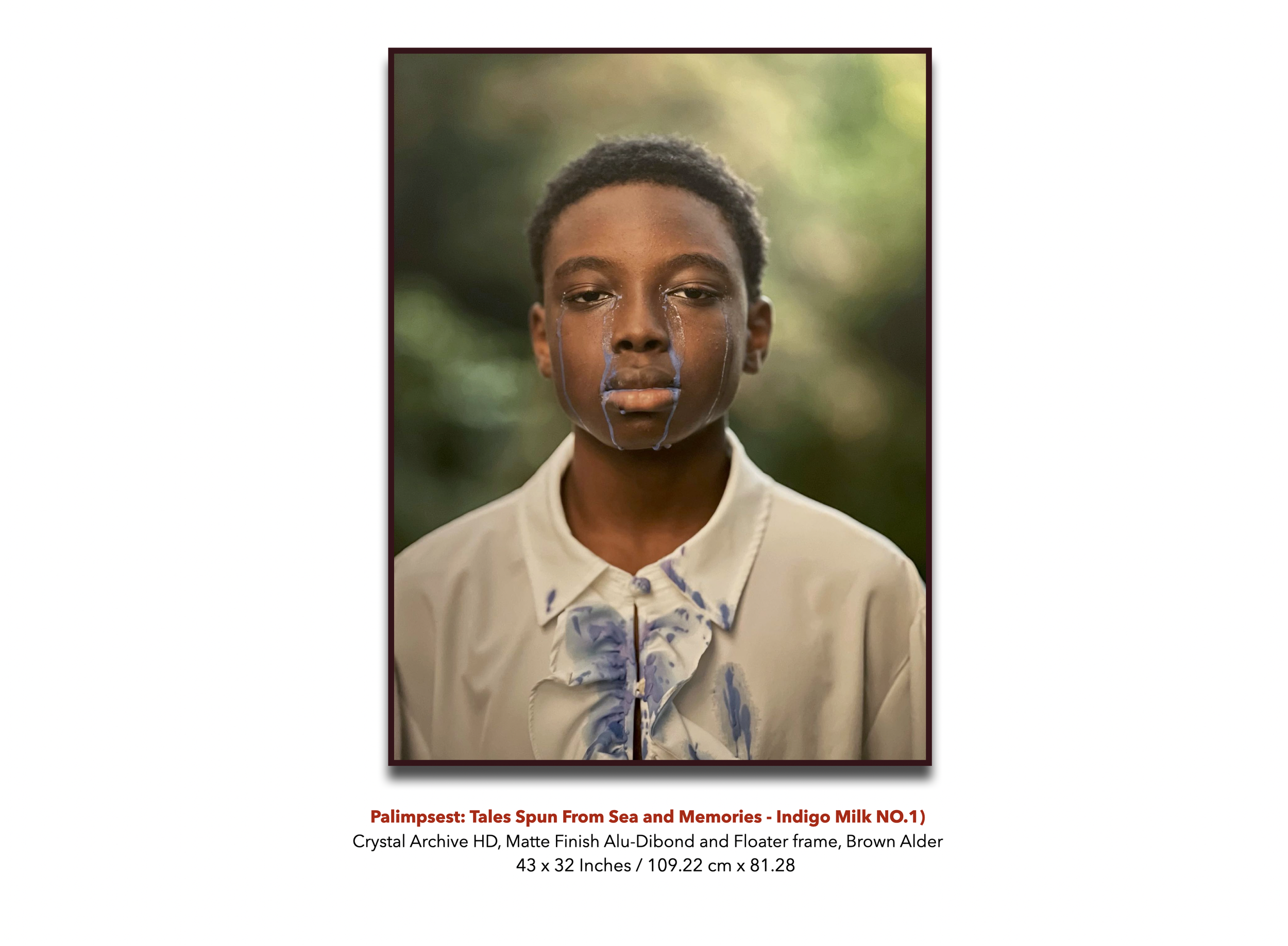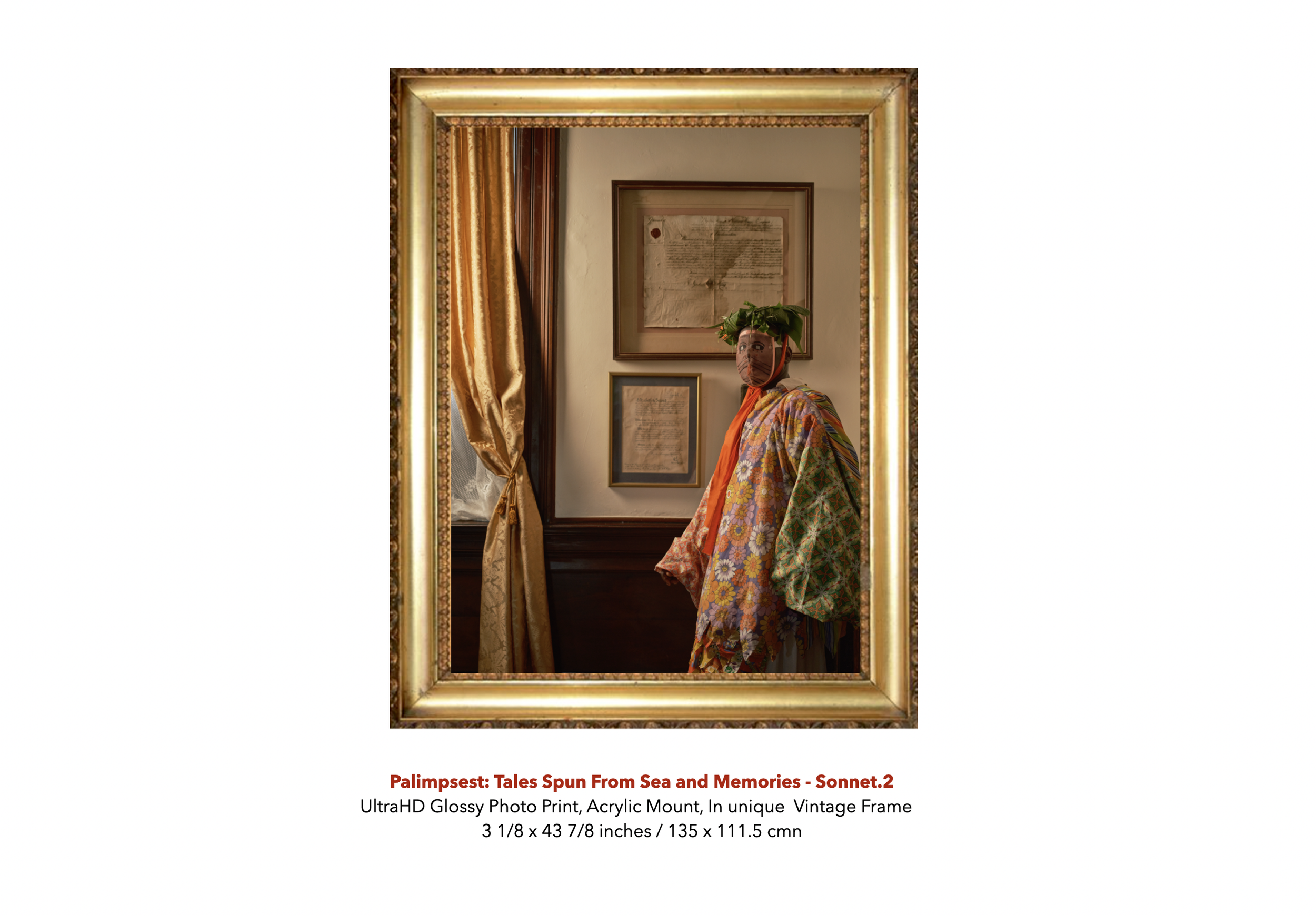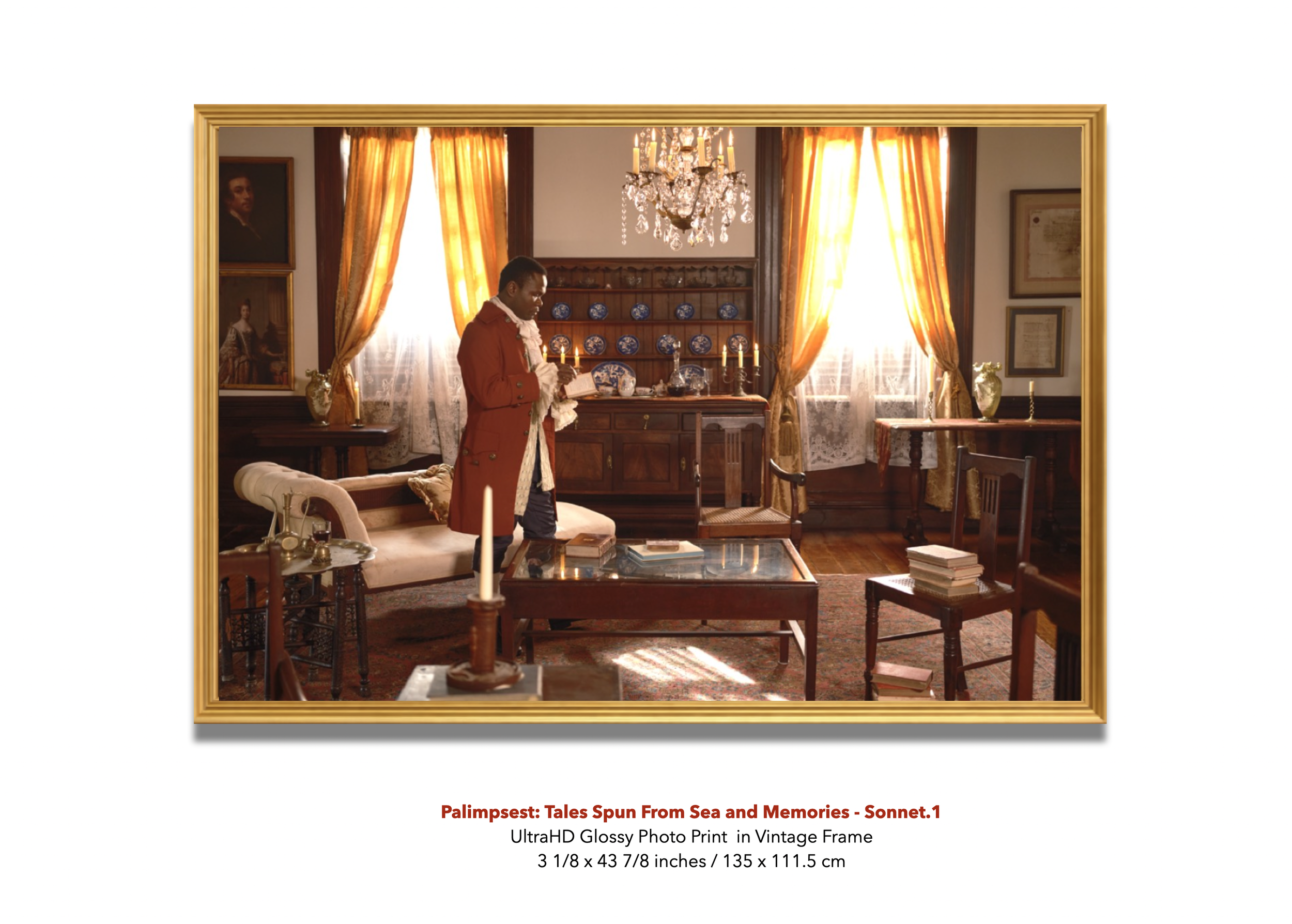Palimpsest: Tales Spun From Sea And Memories
“And if all I know how to do is speak, it is for you that I shall speak. My lips shall speak for miseries that have no mouth, my voice shall be the liberty of those who languish in the dungeon of despair… And above all my body as well as my soul, beware of folding your arms in the sterile attitude of spectator, for life is not a spectacle, for a sea of pain is not a proscenium”.
― Aimé Césaire, Notebook of a Return to the Native Land
“The audience as community has come to depend on the performer’s skills, and on the force of a personal style, to articulate its common values and interpret its experiences.”
— Stuart Hall, The Popular Arts
Palimpsest: Tales Spun From Sea And Memories narrates overlaying tales; fragments of a life and man: Quobna Ottobah Cugoano, born in the Gold Coast (Ghana) in the Fante village of Agimaque. Cugoano was one the most radical and central African British opponents to have actively engaged in the fight against slavery in the eighteenth century, though his story and name are often overshadowed by other key figures like Olaudah Equiano, Granville Sharp, William Wilberforce, Thomas Clarkson, among others, in the larger history and narratives of the abolitionist movement. His book Thoughts and Sentiments on the Evil and Wicked Traffic of the Slavery and Commerce of the Human Species (1787) in England after he gained his freedom, is one of the most direct criticisms of slavery by a writer of African descent and was one of the first formerly enslaved people to write and publish a text in the English language.
He was kidnapped by slave traders at age thirteen in Ghana with a group of children while playing in the woods and brought to Grenada where he was enslaved on sugar plantations for about a year. He was then brought to England at the end of 1772 by Alexander Campbell, who owned many slaves and plantations in the West Indies, with his largest holdings in Grenada. In England, Cugoano was baptized and given the name John Stuart. Later he entered the service of the royal artist, Richard Cosway, where he was introduced to all the pageantries of class and colonial power in Great Britain while writing Thoughts and Sentiments On The Evil Of Slavery…. But that was then and this is now, as Cugoano navigates us through a kaleidoscopic, contemplative voyage of time immemorial, a collision of memories: present, past, and future, of dreams and illusions and fantasies; ruins and landscapes; histories and myths and traditions; people and places and cultures encountered on his Trans-Atlantic voyage: Grenada; Ghana; England — Meditations on a life and time.
Palimpsest: Tales Spun From Sea And Memories comprises of (film installation, sculptures, mix-media paintings, and stills) sketching multiple storylines and vignettes that are neither constricted nor defined by a single narrative voice or codes of being. Rather, it’s a deconstructed repositioning of memories, excavating histories, and myths, evocative of a place and time and people. The first iteration in the body of works (a film installation, stills, and sculpture), will be showcased at the Venice Biennale 2022 representing the Grenada National Pavilion. Palimpsest: Tales Spun From Sea And Memories takes poetic liberty in exploring the metaphorical relationship of Cugoano’s life in the context of masquerading; double-conscious; the performance of subject positions. Each scene is a visual tableau in non-linear time, juxtaposed against each other in a way that frames the complexity involved in negotiating and performing the multi-subject position and identities across culture and class. In Ghana, a 13-year-old boy’s future is foretold to him by an old, haggard aunt, a Lucumí devotee in her seventies: “A time will come when you will travel to distant lands and cross oceans, see despicable cruelties, walk among royalties and kings in high places, but remember where you came from and what is your name. Speak your name, boy, before you forget who you are, and where you came from. What is your name, boy?”
He was Cugoano the African, the slave, the servant, and John Stuart, the Christian, the writer, the activist, and at times preacher; always having to “switch” personalities in navigating the spaces and the people he moved amongst, against the backdrop of class and power and race politics. Thus narratives within narratives (England/Ghana/Grenada), create a dialogic bridge between cultures, the Atlantic Middle Passage, but the visual image of a boy looking at his reflection in a mirror, or a river, and the narrative reframe: “what is your name, boy?” “I am Quobna Ottobah Cugoano.” A centering question and answer always loops us back to the subject who’s being interrogated, and his relationship to the present world and people he encounters. Cugoano learned to read and write in England while still a personal servant to Alexander Campbell, driven by a passionate commitment to helping his fellow African enslaved brethren. He writes, “I have endeavored to improve my mind in reading, and have sought to get all the intelligence I could, in my situation of life, towards the state of my brethren and countrymen in complexion, and of the miserable situation of those who are barbarously sold into captivity, and unlawfully held in slavery.”
After gaining his freedom, he was employed as a servant for the Royalist artists Richard and Maria Cosway in their Schomberg House on Pall Mall in London. Their Pall Mall residency was a fashionable salon for London’s society types, poets, and artists, like Willam Blake and Sir Joshua Reynolds, who were among some of the subscribers and supporters of Cugoano’s book, Thoughts and Sentiments on the Evil and Wicked Traffic of the Slavery and Commerce of the Human Specie. The book thrust him into the spotlight as a principal voice and crusader in the abolitionist movement, though his work and voice are hardly known ( except by a few academics) and for the most part missing from the larger history and narrative of the abolitionist movement. I intend that this timely story of Cugoano and body of works will help to give voice to and re-situate him in history and to a wider audience. "What is your name boy and where are your people from?" “I am Quobna Ottobah Cugoano, an African free man.” In search of his own Africanism and authentic voice, Cugoano exhibited many personas; and wore many masks; his life was complex and ungraspable, always in “process”, echoing Stuart Hall’s concepts in Cultural Identity and Diaspora of one's identity as a ‘production which is never complete, always in process.' Hall writes, “Though we speak, so to say ‘in our own name’ of ourselves and from our own experience, nevertheless who speaks, and the subject who is spoken of, are never identical, never exactly in the same place,” in the spirit of how one approaches excavating Cugoano’s life and memories that ended in obscurity.












